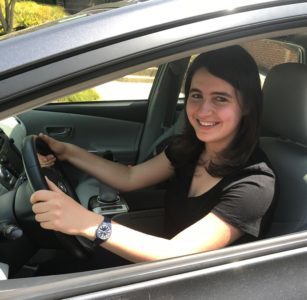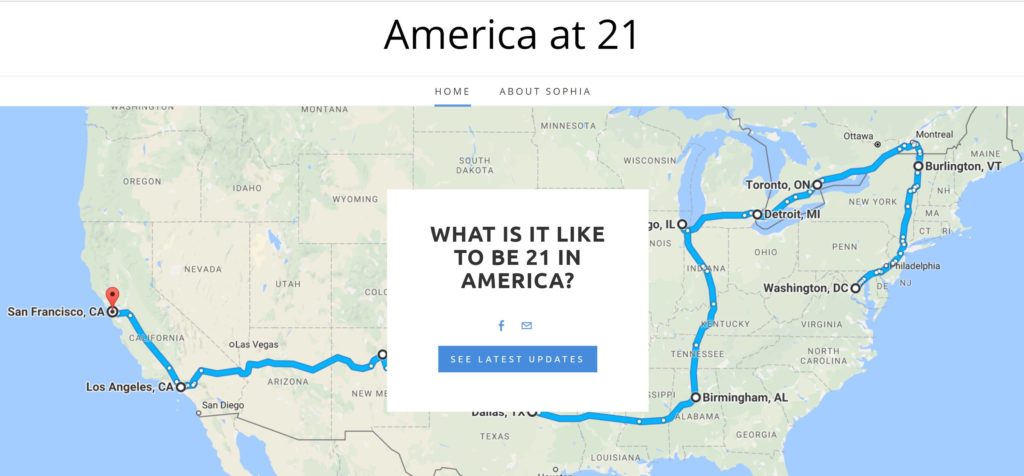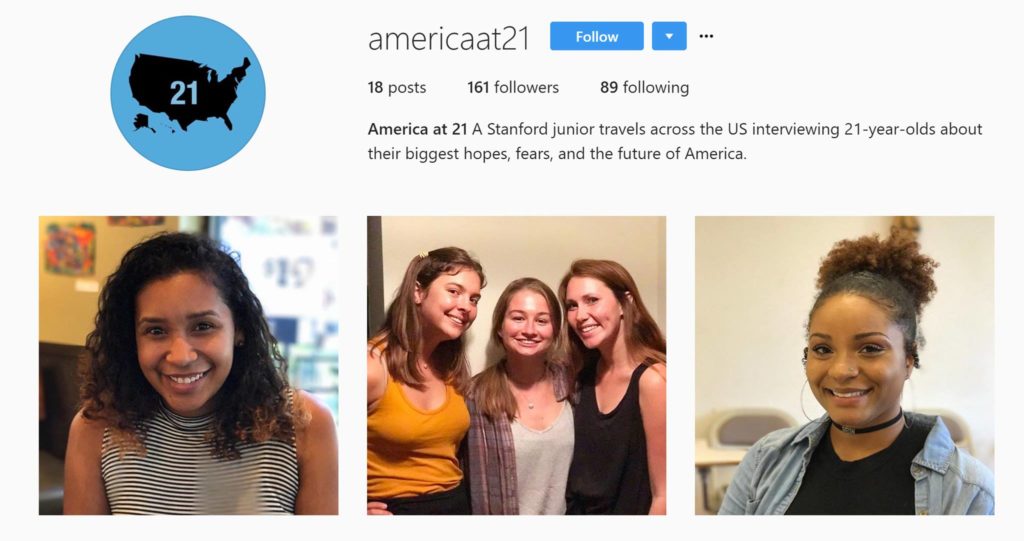LearnServe Fellow (2013) Sophia Pink has launched an independent research project highlighting American young adults across the country. We asked her about the project, titled America at 21, and her vision of social innovation.
What is the mission of America at 21?
 Twenty-one-year-olds are at a turning point in their lives. At the same time, America today is at an inflection point. We’re more connected than ever before, yet also more divided. The summer before I turned 21, I set out on a journey to find out: What is it like to be 21 in the United States? How are 21-year-olds thinking about their own future and the future of America?
Twenty-one-year-olds are at a turning point in their lives. At the same time, America today is at an inflection point. We’re more connected than ever before, yet also more divided. The summer before I turned 21, I set out on a journey to find out: What is it like to be 21 in the United States? How are 21-year-olds thinking about their own future and the future of America?
One goal of the project is to give people my age an idea of how their peers are thinking about the country. Are their hopes and fears drastically different from someone living in another part of the country? A second goal is to help other generations understand how the people who are just entering adulthood are thinking about the future.
What have you accomplished so far?
This past summer, I drove 6,000 miles through 24 states and interviewed fifty 21-year-olds from all walks of life. Armed with a microphone, an iPhone camera, and a list of questions, I conducted interviews everywhere from a church in Detroit, to a dorm outside of Boston, to a cattle ranch in rural Alabama. I asked young people questions about their own future (Ex. What is your greatest fear? What is your biggest hope?) and questions about the future of America (Ex. If you could change one thing about America, what would it be?).
I made it from Washington, DC to Los Angeles, CA with dozens of hours of interview tapes, 50 photo portraits, and a deep appreciation for the US highway system. Now, I’m back in college analyzing all the data I have and preparing to share it with a wider audience.

What have you enjoyed most or learned the most from while working on this project?
The media often portrays young people as naval-gazers who are obsessed with their social media profiles and absorbed in their safe spaces. But I asked 21-year-olds: what would make a meaningful life for you? No matter where I travelled, I heard the same refrain: young people wanted to “make a mark” on the world. Everyone from construction workers in Pennsylvania to college students in California said that they didn’t want to pass away without having an impact on others.
It’s gives me hope to see a generation guided by purpose. Employers, educators, and organizations don’t need to worry about lazy millennials — they simply need to harness this desire for impact, and as one interviewee said, “Give us the resources. Allow us because we understand, we live in it, this is our America.”

How did your experience in the LearnServe Fellows program influence your understanding of social innovation?
It’s so much easier not to do something new than it is to take the risk of creating something. So the default for most of us is to leave the world as it is. LearnServe flips this: it assumes that all young people can and will create something that matters. This is the core of social innovation that I learned at LearnServe — that no matter our age or background, our default mode should not be to passively accept the world as it is, but to actively look for ways to make it better.
Learn more about America at 21 on Sophia’s website and Instagram page.
